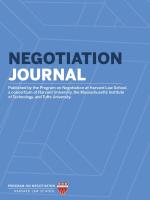Radical secularism and worldview dilemmas in countering sectarianism in Lebanon
Through an analysis of Lebanon, this article investigates the secularism dilemma, namely, that secularism often leads to the politicization of religion and a high risk of conflict. Although this is the case in Lebanon, Lebanese political activists and youth movements advocate for secularism as the only alternative to the present consociational political system. The article introduces the worldview theory of the German philosopher Karl Jaspers and deconstructs the concept of secularism by focusing on philosophical and anthropological academic debates on the topic. The goal is to discover why Lebanese support of secular movements and parties is remarkably limited despite the massive support of civil society for a radical critique of the present political system. The article ends with a discussion of two concepts: “radical secularism,” coined by the philosopher Charles Taylor; and “asecular power,” introduced by the anthropologist Hussein al Agrama. It concludes that the Lebanese case teaches us that the relation been worldviews and secularism must be reformulated in new ways to solve the secularism dilemma.
DIIS Experts



